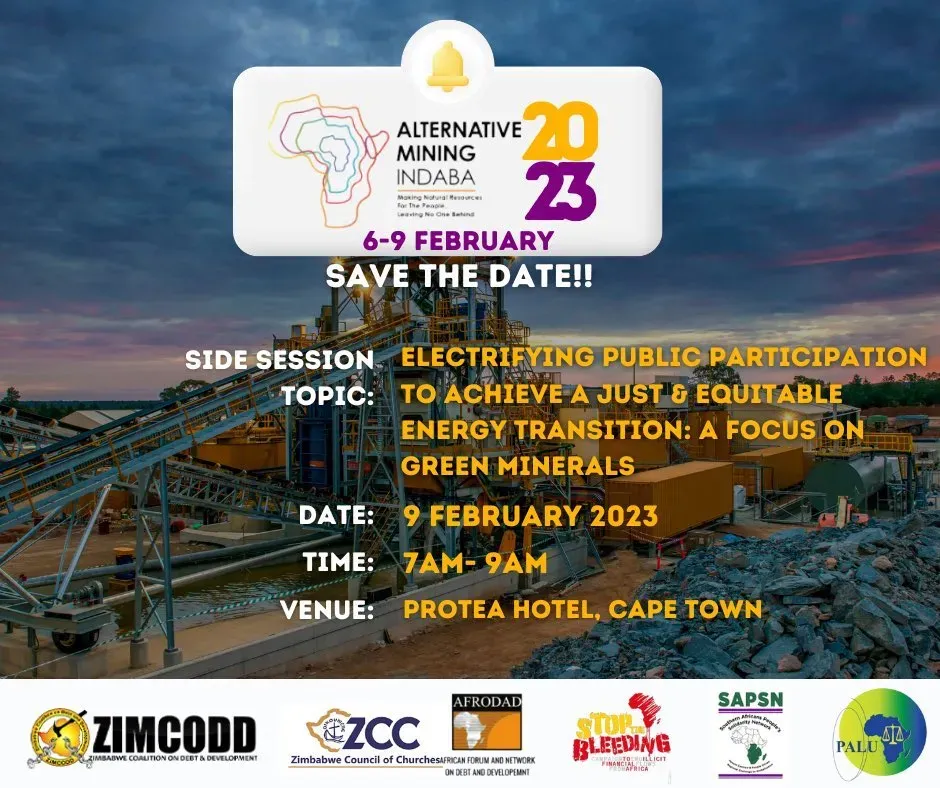During the Alternative Mining Indaba (AMI) 2023, that took place on 7-9 February in Cape Town, South Africa, AFRODAD collaborated with its partners Zimbabwe Coalition on Debt and Development (ZIMCODD) , Zimbabwe Council of Churches (ZCC), the Pan African Lawyers Union (PALU), Southern African People’s Solidarity Network (SAPSN) and the Stop the bleeding consortium to host a side event on Electrifying public participation to achieve a just and equitable energy transition: A focus on green minerals. The meeting brought together 34 participants and was held at the University of Cape town graduate school of business.
AFRODAD discussed resource backed loans and the increase of debt distress particularly among countries that are endowed with natural resources. The emphasis was on the danger of countries using resources as collateral, the opaque nature of Resource Backed Loans (RBLs) and whether RBLs can be used as financing instruments for countries. In the end, the participants agreed that there is need for more education for communities around the just energy transition. AFRODAD’s input was supported by a research on Resource-Backed Loans and Public Sector Collateralisation of Natural Resources in African Countries. Collateralisation of mineral resources takes place when the creditor has rights over an asset or revenue stream that would allow it, if the borrower defaults on its payment obligations, to rely on the asset or revenue stream to secure repayment of the debt. This was a very useful and appropriate discussion looking at how African countries, especially resource rich ones have been struggling with rising debt, low domestic resource mobilisation from their natural “wealth” that majority of people from various communities do not benefit from.
Other discussions revolved around increasing community participation around the just energy transition and the Supreme Audit Institutions highlighted the role it plays in ensuring publishing of audit reports. The institution encouraged citizens to engage with the audit reports and pointed out progress in EAC where audit reports have been published in local language. The institution also pointed out to the citizen eye app being piloted in Ghana, Kenya, Botswana, Liberia and Mauritius. The church institution reemphasised the role the church plays in promoting equality, honesty, integrity, justice and accountability as well as knowledge sharing to communities since it has a big voice with regards to good governance.

